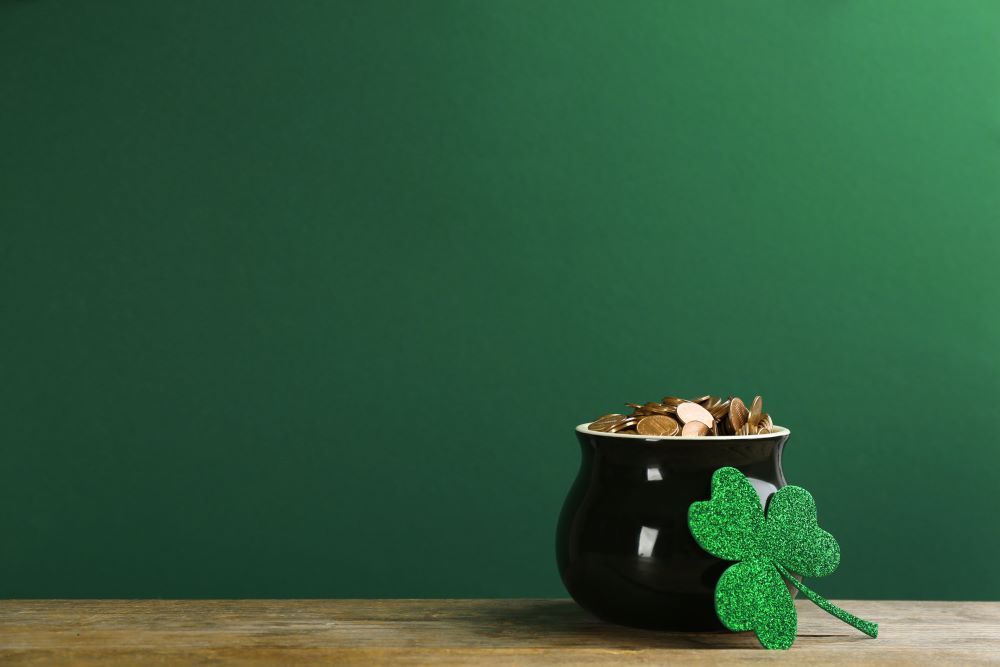
As well as being a major celebration for the Irish wherever they are, St Patrick’s Day is also an opportunity to bang the bodhran for Irish trade.
According to an analysis of the changing nature of Irish trade, rapid expansion since the 1990s has been based on sustained export growth, mostly in tandem with the country’s significant success in attracting, but reliance on foreign direct investment.
Knowledge economy
Once a largely agrarian society, today the Republic of Ireland is still strong in agribusiness but is also a sophisticated knowledge economy focussed on services in technology, life sciences and financial services.
Foreign-owned multinationals make up a significant percentage of Ireland's GDP, with 14 of the 20 largest firms in Ireland being foreign-owned.
Since 2010, services have been of growing importance to the Irish economy, according to the report The Changing Nature of Irish Exports, which said services made up approximately half of total Irish exports by 2012.
Major markets
Figures for 2019 show that Ireland exported £152bn in goods and imported £91bn, according to the Irish statistics office, the CSO.
Major export markets were Europe (€79bn), the US (€47bn), and Asia (€17.4bn). The UK accounted for €15.7bn, making it the second largest single export market at that time.
The UK was Ireland’s largest export market for services in 2020 at €35bn, ahead of the US at €33bn. Overall exports of services were up to €244bn from €230bn in 2019.
Recent figures show that seasonally adjusted goods exports increased by €2.2bn (+16%) to €15.5bn in January 2022 compared with December 2021, according to figures from the CSO. Year on year, the figures for January were up by €3.1bn.
Brexit dust settling
With Brexit dust starting to settle, Britain remains a vitally important trading partner for the Republic of Ireland.
Exports to Britain in January 2020 were €1.4 billion, an increase of €458 million or 48% compared with January 2021. Exports of chemicals and related products were behind the increase, said The Irish Times.
Exports of goods from the island of Ireland to Great Britain are still benefiting from a UK government easement on full import controls and having to make customs declarations. These have been delayed as long as negotiations over the Northern Ireland Protocol are ongoing.
Imports from Britain were up 144% to €1.8 billion compared with January 2021 with mineral fuels, lubricants and related materials, chemicals and related products, and machinery and transport equipment all fuelling the increase.
Main goods exports
Ireland’s main goods exports (January 2022) were food and animals (€902m), beverages and tobacco (€167), crude materials, inedible, except fuels (€155), and mineral fuels, lubricants and related materials (€152m).
Pan-Ireland trade boost post-Brexit
The post-Brexit era has seen a shift as trade between the Republic of Ireland and Northern Ireland has “rocketed” according to the Guardian, with both territories benefiting from remaining in the EU Customs Union. In May 2021, The Economist hailed the Republic’s pragmatic approach to Brexit in an article entitled ‘How the Irish Republic is making the best of Brexit’.
Politico explains that while cross-border commerce is surging on the island of Ireland, imports from Britain have slumped as Irish firms traditionally reliant on imports from Britain switched supply chains to firms in Northern Ireland.
The value of imports from Northern Ireland up by 60% in the first nine months of 2021 to €2.8bn (£2.37bn).
Trade in the other direction was up 48% rise in exports to Northern Ireland to €2.6bn for January to September 2021.
As previously covered in the IOE&IT’s Daily Update, the value of goods imports from GB to ROI for January to November 2021 was down by 21% to €12,501m, compared with the same period in 2020.
Trade boosters
Taoiseach (prime minister) Micheál Martin visited London this week to commence Enterprise Ireland’s global programme of events for St Patrick’s Day. Enterprise Ireland is a government agency tasked with growing Irish exports worldwide.
Martin met with Irish companies who are scaling in the UK market and their UK partners. The UK is the largest export market for Enterprise Ireland client companies, representing 29% of total exports and valued at €7.5bn in 2020.
Across the Pond
Across the Atlantic, ministers were highlighting the importance of tech companies to the Irish economy, as minster Michael McGrath met with US tech companies including Google, Apple, and Meta at the California offices of investment agency IDA Ireland, it tweeted.
Meanwhile, minister Norma Foley met with tech companies in Boston. The tech sector employs over 37,000 people in Ireland and generates €35bn in exports annually.
Other St Patrick’s Day trade boosters include Irish craft producers being showcased on ecommerce shopping platform QVC, as part of ‘Made in Ireland’ broadcast, featuring companies such as Killarney Crystal, Charles Gallen Irish Linen and Fadó.
The event is supported by Enterprise Ireland and Tourism Ireland.
